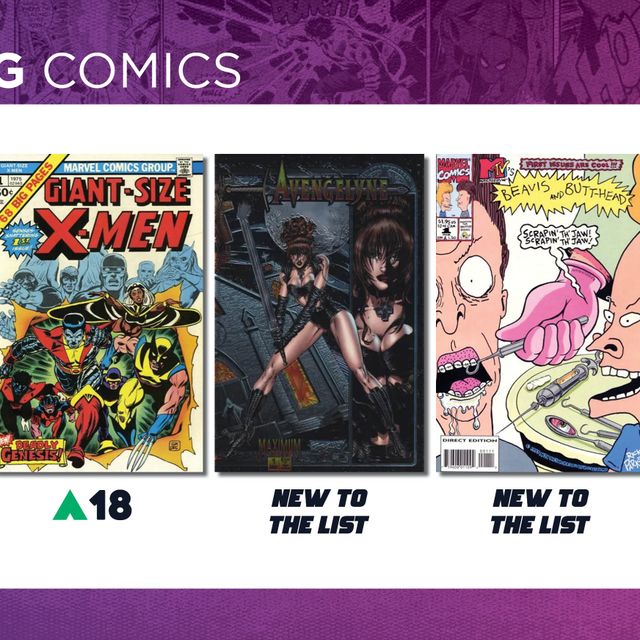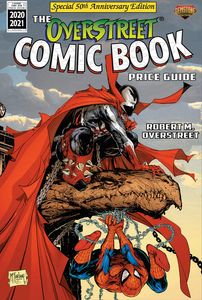
Guide to Keys
The Overstreet is a guide for keys and non-keys alike. It helps flesh out first self-title or first full appearance, etc. I consider it the arbiter of the different comic book ages (Is my comic book Modern Age, or Bronze Age, and is it in the top 20 for that age?). Do you need to know the top 100 Golden Age books or the top 10 books by genre? Overstreet publishes this in the front section just after the Market Review.
Guide to Grading
Overstreet also provides a counter to the CGC or CBCS grading scale. Instead of an unlikely 9.8, the book only goes to 9.2 or near-mint minus. It provides a clearly defined grading definition which is good support for selling books online. In addition, it has artist work, dates for published works, appearances, storylines, and a host of mundane data that can prove useful. There is also an overview of the market forces at play within the comic book market. This last item can be an important diviner of retail trends and possible hot picks.
How can this Overstreet Guide help you today? Can you improve your returns as a speculator with the guide?
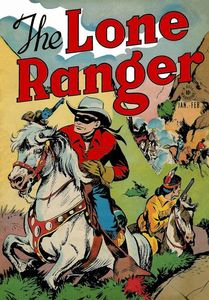 Comics: The Wild West of Speculation
Comics: The Wild West of Speculation
The Wild West mining town was a knockdown-drag out experience. It was the Gold Rush an age of speculation. Prospectors were buying and selling everything: worthless claims, pyrite, gold mines, gold ore, one another, tools, equipment, guns, and that momentary notoriety on the poker or craps table. Life was cheap and many bar fights probably ended in great loss of life, limb, and property.
The gambling dens at the time were infamous for devouring miners claims, and meager earnings. Yep, four aces AGAIN! It was a time of speculation when it appeared anyone could get rich. The truth was far different, the merchants got rich, the miners got the shaft, and many of these mining towns dried up and became ghost towns.
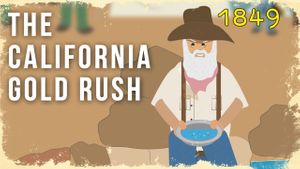 Qualified Source
Qualified Source
Nowadays we are in a similar phase but instead of the rare gold speculation, we find ourselves mining fifty-cent bins for forgotten damaged collectible comics, or paying top -dollar for a primary key (retail) and then trying to flip it online. In a nutshell, comic book speculation is a gold rush of sorts. What book can we rely on for relevant details?
The Overstreet Guide has the relevant details, fact-checking, and retail experiential knowledge needed more now than ever before. It is not without mistakes, but the majority of the time this book is packed with solid information you can take to the bank. How does the Overstreet Guide pair up against current resources online in the quest for correct pricing? Further, how can the details of top books and retail businesses help speculate with comic books?
Returns for 2-Years Overstreet vs. GoCollect.com
| Title | Grade | Sale Price | Return |
| Avengers #1 (Overstreet Guide) | Near Mint Minus | 45,000 Est | No Return 0% |
| Avengers #1 (GoCollect.com) | Near Mint Minus | 46,800 Actual /50,000 Est | +4% |
| The Lone Ranger (GoCollect.com) | Very fine to near mint | $1320 | +73.4% |
The Overstreet Guide is alive and well. It has recently completed it's 50th Anniversary book. The data might not be absolutely current but the majority is very close to current prices minus any hot books. For instance, when comparing Overstreet to GoCollect.com; (see above) I found GoCollect.com to have better numbers. However, Overstreet was so close it almost could compete even while being a fixed published document that doesn't update. The difference was almost negligible except for the recent books and any hot prospects that come along.
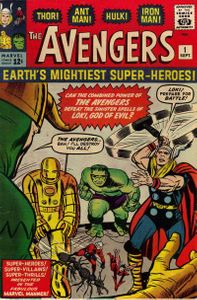
Conclusion
Sure the $1,800 difference (see above) is at least a house payment, but the guide is still relevant today. The prices are not too far off and it is a great resource for data, retail history, rankings, and a multitude of other information. Always buy a guide, it is useful for buying and selling comics. One of the speculators I do business with often discounts his books heavily against the Overstreet Guide average price per grade. This is a good technique it gives him a baseline for lesser and low-grade books and moves products quickly. Besides a percentage off-price from the guide is a good thing for this buyer.



